

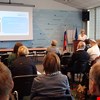

Following the end of the first phase of WACDEP in 2016, an African Ministers’ Council on Water (AMCOW) programme implemented by the Global Water Partnership (GWP) and partners, a number of knowledge products have been developed to help capture the various lessons and experiences drawn from the various WACDEP projects. The products provide a more comprehensive understanding of the programmes innovative approach.
These knowledge products are the opportunity to make available the programmes thinking and knowledge as we continue to build a water secure and climate resilient world. Access the products below:
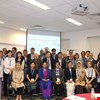
The 2016 GWP PANASIA Workshop was organized by GWP SEA and hosted by Singapore PUB in Singapore from July 14 to 15, 2016.
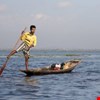
Coinciding with the meeting of the GWP Steering Committee (SC), a High Level Roundtable on Water Security and the SDGs was held in Yangon, Myanmar on May 24, 2016.
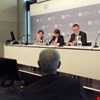
Bonn 19 May 2016 - Global Water Partnership (GWP) has launched a global programme to assist countries to implement the adaptation component of their Nationally Determined Contributions (NDCs) – the climate plans submitted to the UNFCCC ahead of the Paris Agreement.
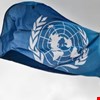
GWP representatives are at the UNFCCC Climate Change Conference in Bonn, Germany, taking place 16-26 May. The focus is on GWP support for the implementation of the Paris Agreement, specifically in relation to the Nationally Determined Contributions (NDCs) from countries, the National Adaptation Plan (NAP) processes, South-South Cooperation, and financing. On Thursday 19 May GWP is co-organising a high level side event together with the Government of Morocco, the UNFCCC Secretariat Adaptation Programme, and GIZ.

The First High Level Ministerial Panel on Responding to Climate and Environmental Challenges in South East Europe (SEE) took place on 1st April 2016, in Podgorica, in the framework of the South East Europe Strategy 2020 and the Regional Cooperation Council (RCC).

The Global Water Partnership-Caribbean (GWP-C) has done some major updates to its Caribbean Water and Climate Knowledge Platform which was developed under its Water, Climate and Development Programme (WACDEP) in 2014.
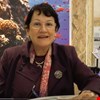
Dr. Nicole Bernex is a Professor at the Pontifical Catholic University of Peru and a Member of the GWP Technical Committee. She has been active in the GWP network for many years, the past ten of them through GWP Peru. When asked to talk about a topic close to her heart, Dr. Bernex chooses a project that GWP has been running successfully in Peru for the past two years, the Santa Eulalia Water, Climate and Development Programme.
World Meteorological Organization (WMO) and Global Water Partnership South Asia (GWP SAS) will be jointly organising ‘Climate Services User Forum (CSUF 27 and 28 April 2016) for the Water Sector in South Asia’ in association with WMO’s South Asian Climate Outlook Forum (SASCOF-8) in Colombo, Sri Lanka.